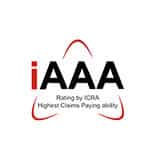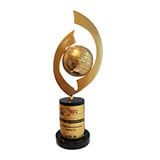

What is a Pregnancy Diet?
Overview
Good diet & regular exercising is crucial to maintain your overall well-being. This becomes more important during pregnancy, especially eating a healthy diet. A healthy pregnancy diet will promote your baby's growth and development. Understand which nutrients you need most and where to find them. During pregnancy, while the basic principle of healthy eating remains the same, there are a few nutrients that need special attention. Healthy diet with optimal nutrition can help meet the increased physical demands of pregnancy & also help the fetus develop.

It is recommended to have a balanced diet rich in nutrient-dense foods, including various animal and plant-based proteins, fruits, grains, and vegetables during pregnancy. However, some foods and drinks, such as alcohol and some cheeses should be avoided as it can have a detrimental effect on health of both, mother and the baby.
Important Components of a Pregnancy Diet
Listed below are a few nutrients in a pregnancy diet that deserves special attention.
1. Folic acid (folate)
Folate is a B vitamin that helps prevent birth problems related to brain and spinal cord (neural tube defects). The folate found in supplements and fortified foods is known as folic acid. Intake of folic acid supplementation has shown to decrease the risk of premature birth and low birth weight baby.p
Daily Requirement - 400 micrograms (mcg) a day of folate or folic acid before conception and 600 to 1,000 micrograms of folate or folic acid a day throughout pregnancy. Anyone who might become pregnant should take a daily vitamin supplement containing folic acid.
Here are some foods that are good sources of folate-
- Broccoli
- Chickpeas
- Lentils
- Spinach
- Cabbage
- Cauliflower
- Oranges
- Peas
- Wholegrain bread
2. Iron
This is an important nutrient required by the body to make haemoglobin, a protein in the red blood cells that carries oxygen to body’s tissues. During pregnancy, the requirement of iron doubles as the body needs this iron to make more blood to supply oxygen to the baby. Less intake of iron during pregnancy can result the mother to develop iron deficiency anaemia. You might experience headaches or become fatigued. In cases of severe iron deficiency anaemia during pregnancy, there is an increased risk of premature birth, having a low birth weight baby and postpartum depression.
Daily Requirement - 27 milligrams a day
Some good sources of iron for pregnant women are:
- Poultry
- Fish
- Lean red meat
- Breakfast cereals
- Beans
- Vegetables
While the iron from animal products, such as meat, is most easily absorbed, in case of plant sources and supplements you might want to pair them with a food or drink high in Vitamin C to enhance the iron absorption. This is because Vitamin C increases the chances of iron absorption.
Though prenatal vitamins typically contain iron, your health care provider might recommend a separate iron supplement, if needed.
3. Iodine
Iodine helps to produce the thyroid hormone which is essential for growth. Deficiency of this nutrient can raise chances of congenital hypothyroidism and mental impairment in the baby. The iodine requirement is also more in women who are breastfeeding.
Daily Requirement - 220 milligrams per day during pregnancy and 290 milligrams per day when breastfeeding
Some good iodine sources are:
- Eggs
- Seafood
- Meat
- Dairy products
- Iodised salt
4. Vitamin D
Vitamin D helps with baby’s growth along with mother’s health. Vitamin D with calcium helps to build your baby's bones and teeth. Women who spend a lot of time indoors are at a higher risk of developing vitamin D deficiency. Usually, a blood test at beginning of the pregnancy can help assess mother’s vitamin D levels.
Daily Requirement - 600 international units (IU) a day
While sunlight is the most prominent source of vitamin D, fatty fish, such as salmon, is also a great source of vitamin D.
It can also be derived from foods like:
- Oily fish
- Fortified milk
- Eggs
- Orange juice
5. Calcium
Calcium is important for both, mother and baby for strong bones and teeth. It also supports healthy functioning of the circulatory, muscular and nervous systems.
Daily Requirement - 1,000 milligrams (mg) a day; pregnant teenagers need 1,300 milligrams a day.
Some good sources of calcium are:
- Dairy products
- Nondairy sources include broccoli and kale
- Fruit juices and breakfast cereals
6. Protein
Getting the optimal amount of protein during pregnancy is critical as it helps your baby’s growth throughout pregnancy.
Daily Requirement - 71 grams (g) a day
Sources rich in protein include:
- Lean meat
- Poultry
- Seafood
- Eggs
- Beans and peas
- Nuts and seeds
- Soy products
Tips to Eat Healthy during Pregnancy
Here are some ideas to help you eat healthy during pregnancy.
- Follow a Healthy Eating Pattern - This means eating healthy by including a variety of nutritious foods & drinks in your diet. You should eat a variety of vegetables, fruits, whole grains, protein foods, fat-free or low-fat dairy products, and limit intake of refined grains and starches.
- Consume right amount of calories - Being pregnant doesn't mean you need to eat twice as much food. Ask your doctor or midwife on how many calories you need during each stage of pregnancy. Also, make healthy snack choices to avoid those extra calories.
- Take prenatal vitamin including essential nutrients - Ask your doctor about a prenatal vitamin that is right for you.
- Avoid certain foods – This includes raw or undercooked fish, soft cheeses (like feta, goat cheese), unpasteurized juices or milk, raw or rare meat, poultry & eggs, and raw sprouts.
- Limit consumption of caffeine and drinks with added sugar.
- No alcohol and no smoking.
Conclusion
Pregnancy increases physical demands of the body and in order to meed these demains, one must follow a personalized & customized diet. A pregnancy diet should include optimal amount of necessary vitamins & minerals to ensure healthy and happy pregnancy & postnatal recovery. Additionally, including prenatal supplements can also help to provide necessary nutrients needed during pregnancy. Also, it is a good idea to consult a doctor when planning a pregnancy diet.
Frequently Asked Questions
1. Are fruits included in a pregnancy diet?
Yes. Fruits are a healthy part of any diet, including pregnancy diet.
2. Can we eat junk food during pregnancy?
It is advised to control the intake of junk food during pregnancy as it may cause excessive gestational weight gain, resulting in further complications.
3. Can pregnant women fast?
No, fasting is not advised during pregnancy, especially during the critical weeks between week 22 and 27.
4. Can I go on a diet during pregnancy?
Dieting during pregnancy is not recommended as it could harm both, mother and the baby. This is because some diets can result in low levels or deficiency of important vitamins & minerals. Weight gain during pregnancy is a good sign and women who gain appropriate amount of weight are more likely to have healthy babies.
5. How many meals can I have during pregnancy?
Three small and balanced meals along with three light snacks are a good diet plan during pregnancy.
Source: Medline Plus, Mayoclinic, CDC.Gov, BabyCenter, Health.Gov, Medical News Today
Get a right Health Insurance today & protect your savings from unexpected medical expenses.
Pregnancy is the most beautiful phase of a woman’s life. As you nourish and nurture your little one in the womb, ensure that you secure your and your child’s well-being with a health insurance plan that takes care of your medical needs during childbirth and beyond.
Disclaimer: This blog provides general information and discussions about health and related subjects. The information and other content provided in this blog, website or in any linked materials are not intended and should not be considered, or used as a substitute for, medical advice, diagnosis or treatment. Kindly contact your Doctor before starting a new medicine or health regime.

/pregnancy-diet_s.jpg?sfvrsn=7a5ce0e5_2)
/pregnancy-care_s.jpg?sfvrsn=bc1596d4_2)
/postpartum-care_s.jpg?sfvrsn=c5fa68b_2)












 Health Insurance
Health Insurance  Travel Insurance
Travel Insurance  Car Insurance
Car Insurance  Cyber Insurance
Cyber Insurance  Critical Illness Insurance
Critical Illness Insurance
 Pet Insurance
Pet Insurance
 Bike/Two Wheeler Insurance
Bike/Two Wheeler Insurance  Home Insurance
Home Insurance  Third Party Vehicle Ins.
Third Party Vehicle Ins.  Tractor Insurance
Tractor Insurance  Goods Carrying Vehicle Ins.
Goods Carrying Vehicle Ins.  Passenger Carrying Vehicle Ins.
Passenger Carrying Vehicle Ins.  Compulsory Personal Accident Insurance
Compulsory Personal Accident Insurance  Travel Insurance
Travel Insurance  Rural
Rural 










